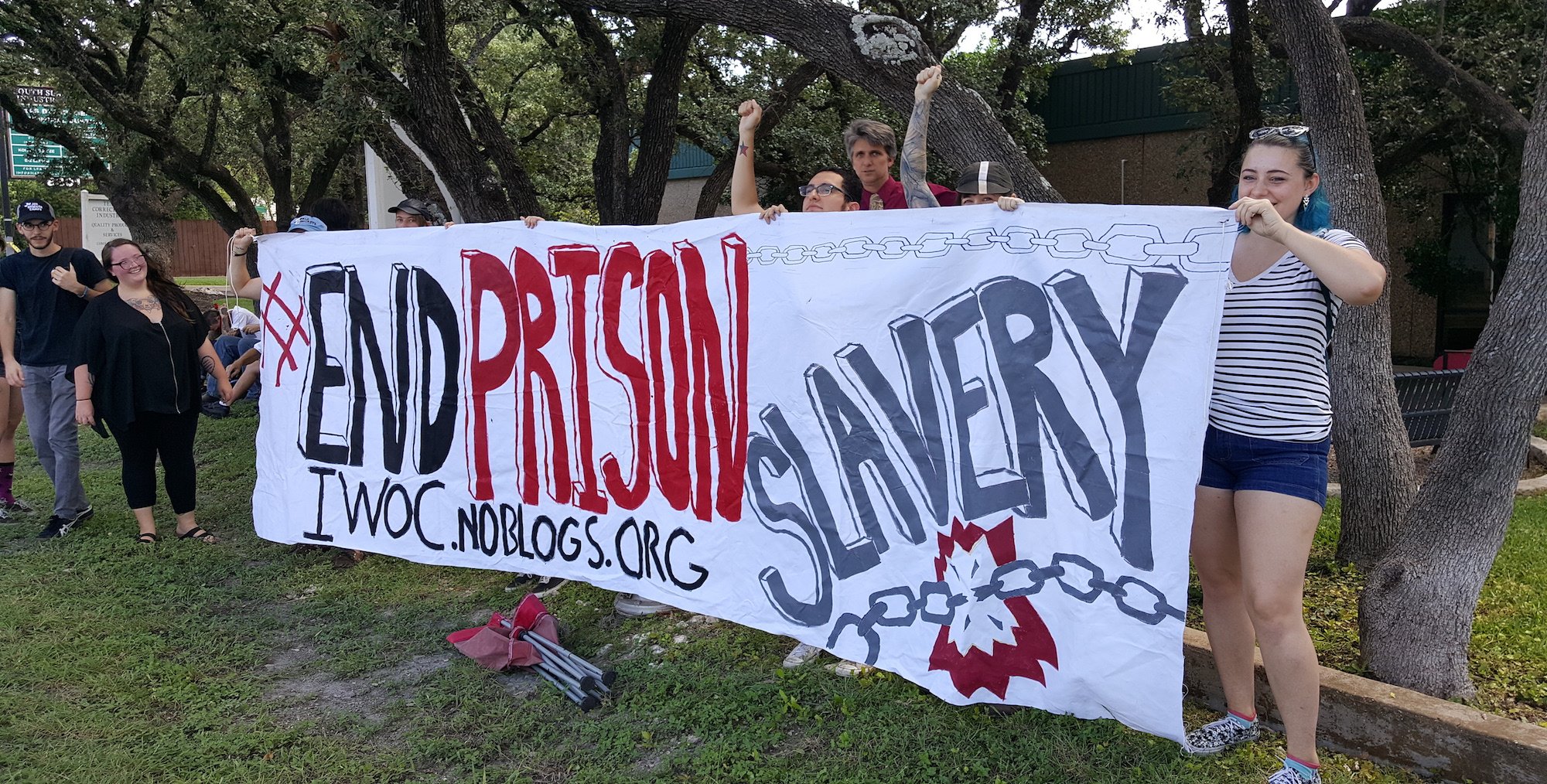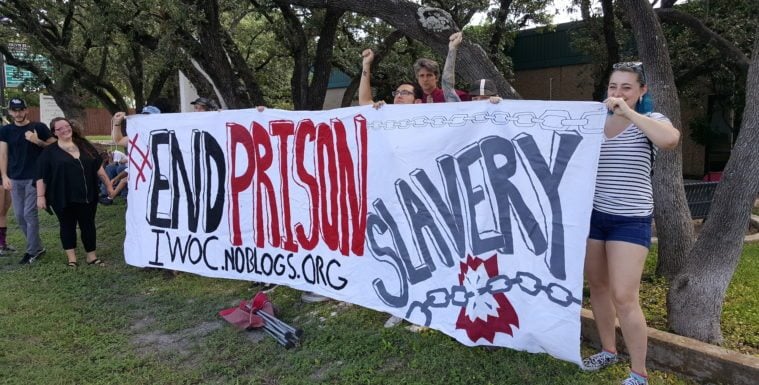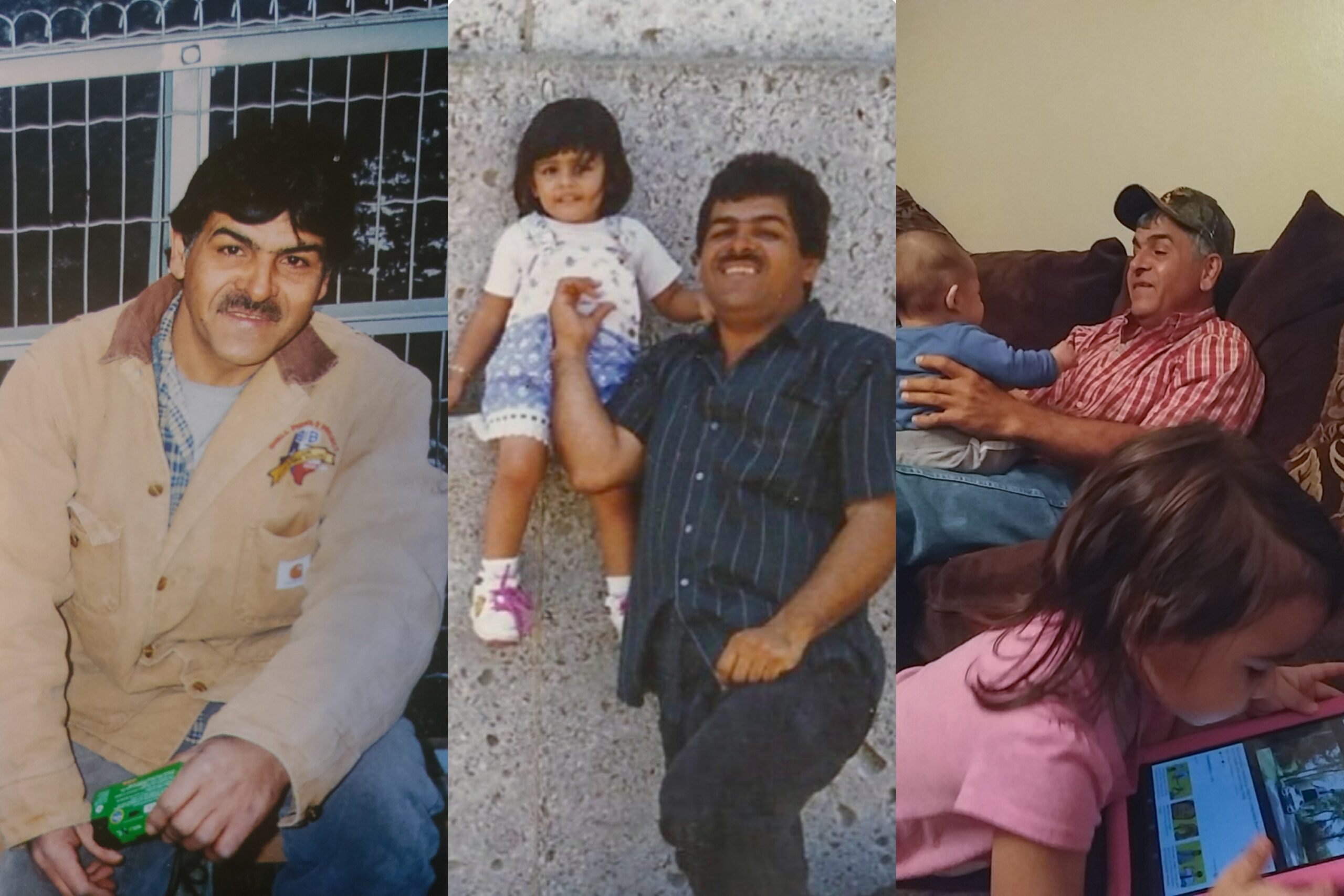
Texas Activists Protest Modern-Day ‘Slavery’ in Prisons
Prison abolitionists gathered in Austin on the 45th anniversary of the Attica prison riots.

While prison inmates launched a nationwide strike last Friday — the 45th anniversary of the Attica prison riots — a small but vocal group of activists gathered in Austin to support their cause.
Hundreds of inmates have joined the Incarcerated Workers Organizing Committee (IWOC), a division of the Industrial Workers of the World union and a major motivator of the strike. Inmates at 40 facilities in 24 states were expected to take part, and some Texas prisoners have been engaging in work stoppages since April.

Prisoners say they want their work to count toward time off their sentences, improved living conditions in prisons, better access to attorneys during disputes, and an end to an annual $100 copay on medical services.
“The inmates in Attica were rioting for some of the same conditions that inmates are striking for today: An end to prison slavery, human dignity, access to adequate medical care, adequate access to wages,” said Azzurra Crispino, an Austin union organizer and part of the Prison Abolition and Prisoners Solidarity group.
Organized by the Austin Anarchist Black Cross and local representatives of the IWOC, about 15 people gathered with signs, banners and bullhorns to chant outside an unassuming, tree-lined office park on the city’s south side, home to the Texas Correctional Industries (TCI) showroom. There, TCI showcases prisoner-made products available for purchase.
TCI prepared for the raucous protest by blocking the entrances to the showroom with yellow caution tape and parked vehicles as demonstrators chanted, “Prisons! Burn them down!” About a half dozen armed security guards turned away activists who attempted to deliver a list of prisoners’ demands, threatening the group and this reporter with arrest if we did not leave the premises and return to a grassy strip of public property outside the complex.
The products displayed in the showroom can be purchased by public entities like cities and hospitals, as well as public and private institutions of higher learning. TCI, which takes all of the earnings from the sales, is a for-profit corporation attached to the Texas Department of Criminal Justice, which brought in $88.9 million in fiscal year 2014, the last year for which data is available.
“Currently, inmates working for TCI are not paid for the work done while serving their time; the only inmates who are paid anything are the small fraction who are employed by TCI’s private sector prison industries program,” wrote Aaron Cantu, in an April 2016 analysis published by LittleSis, a government watchdog nonprofit.
The Texas Department of Criminal Justice argues that working for TCI teaches prisoners “marketable job skills,” but striking Texas prisoners consider their unpaid labor to be slavery.
“The 13th Amendment to the Constitution, most people believe it ended slavery but it didn’t,” said Crispino. “It just made it legal for those who have been convicted of a crime to be made to work without pay.”
Wolf Sittler, a 33-year Austin resident and retired former probations officer and social worker who attended the protest, told the Observer he thinks prisoners should be paid fair wages.
“The way it is now, a person goes to prison and they’re not only deprived of their freedom, they’re deprived of their ability to make money to support themselves and their family,” Sittler said. “In my view, that doesn’t prepare them for life after prison.”

